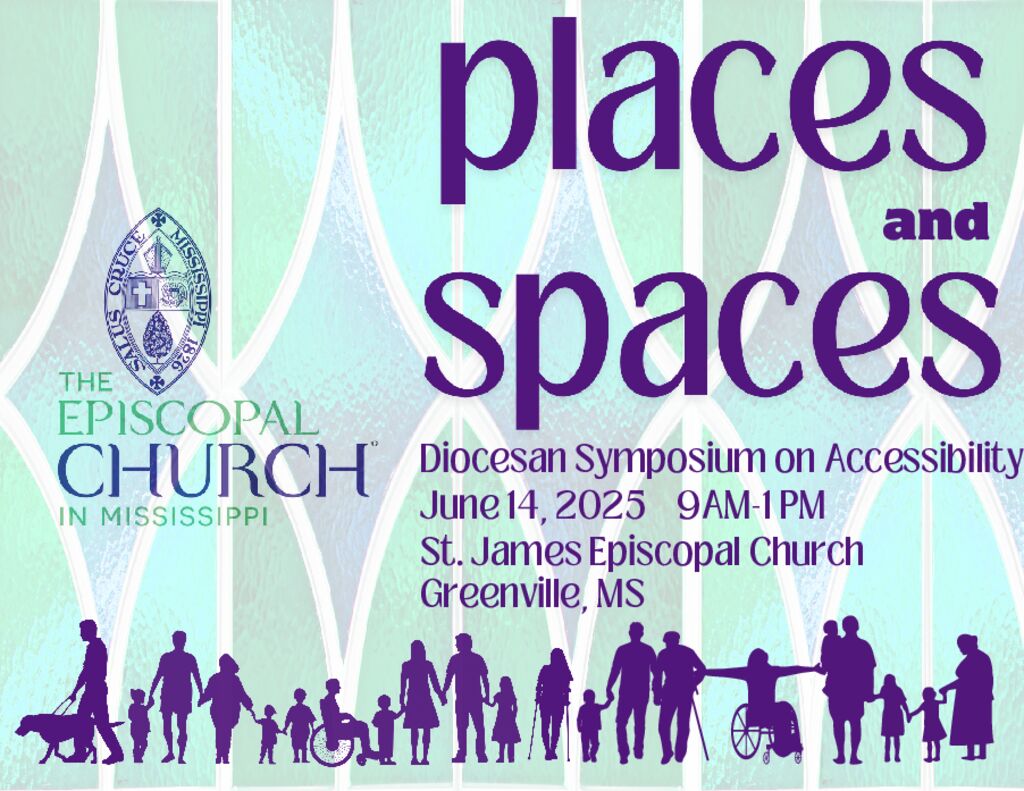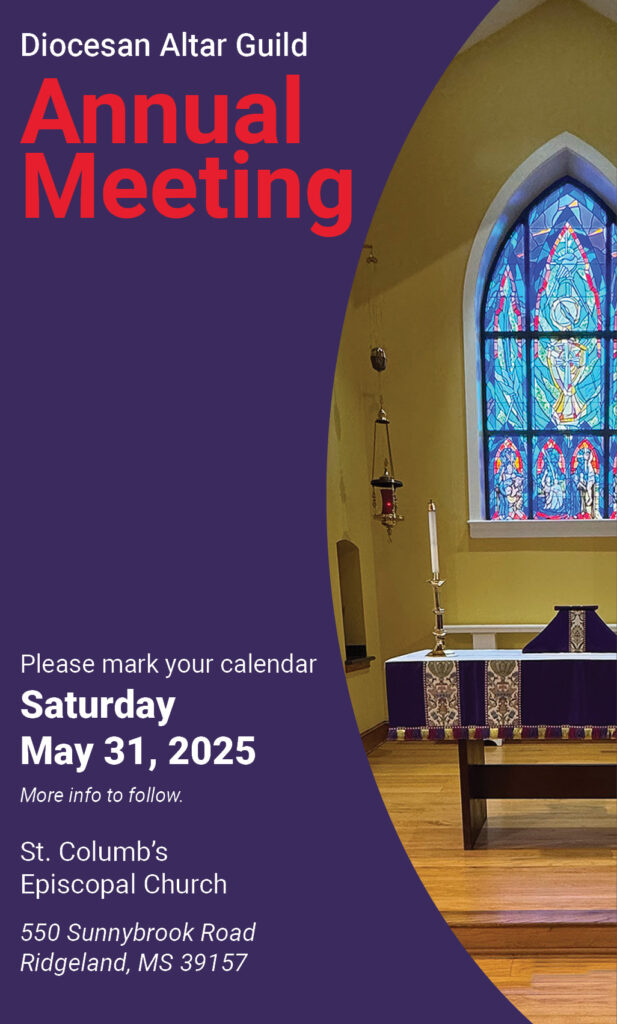
All are one
Becoming Beloved Community in 2025
The Easter season is one of my favorites—as we begin to explore in scripture the struggles of Jesus’ disciples to understand and follow the last commandment which Jesus gives them in John 15:12: to love one another as Jesus loves them. Our scripture readings during each cycle of the Revised Common Lectionary take us into the Acts of the Apostles, and invite us into an in-depth look at those early days of the disciples’ ministry following Jesus’ death, resurrection and ascension. Left to carry on the mission and ministry they began with Jesus, they wrestle with what it means to welcome believers among their own Jewish faith, but also among Gentiles, the uncircumcised, women, Ethiopian eunuchs—all persons with whom they would have had little or no contact in their prior day-to-day existence. For this group of disciples who surely must have thought that the Messiah had come to redeem the House of Israel, there was a not-so-subtle lesson that God had always loved all of God’s people, from the beginning of creation, and that the message of Jesus Christ was for all the world.
And, there it was, laid out for Peter in a dream: “What God has made clean, you must not call profane” (Acts 11:9); later, Peter acknowledged that “[t]he Spirit told me to go with them [Gentiles] and not to make a distinction between them and us.” (Acts 11:12). Peter was able to see for himself the Holy Spirit being poured out upon Gentiles and persons whom he would not have imagined to be included within the grip of God’s grace and the reach of God’s love. And as he began baptizing these believers, we see how he and the other disciples are changed forever.
We are called as Christians to imagine the unimaginable: that God’s love knows no boundaries, no limits, no measure. We are called to realize that in Christ Jesus, “there is no longer Jew or Greek, there is no longer slave or free, there is no longer male and female; for all of you are one in Christ Jesus” (Galatians 3:28, and Colossians 3:11).
During Lent, I offered a Bible Study largely focused on the Book of Genesis, and the ways that God has always had plans and purposes for God’s people fully understanding our humanity. From Cain’s decision to kill his brother, Abel, to Abraham and Sarah’s disobedient choices, to Jacob’s deceitful trickery, to the decision of Joseph’s brothers to sell him into slavery, we are aware that humankind can exhibit violence, greed, jealousy and anger. We’re also aware that even when we have wounded those closest to us—or have been wounded by persons closest to us—we can be healed, forgiven, and forgiving, reconciled and reconciling, given a fresh start and a new name, and empowered to deliver God’s message into the world, even if (like Moses) we feel that we don’t speak well. We are God’s people, created in God’s image and likeness, and deeply loved by our God, in all of our human condition.
As we move through this year, we will expand our work in Becoming Beloved Community to intentionally share the message of God’s unconditional love and grace, and welcome all of God’s people to experience that love with us.
- In May, we will observe Mental Health Awareness Month—and make our best efforts to dismantle the stigma that comes with mental illness. The National Alliance on Mental Illness (NAMI) reminds us that “in every story there is strength.” My mother struggled with mental illness which was undiagnosed until the last years of her life. Our family struggled and suffered—and the relief of being able to give a name to her illness was more than I could ever have hoped or expected. As we seek to empower God’s people to share their stories, we hope to break the stigma and encourage persons who are affected by mental illness (either themselves or loved ones) to continue to seek healing.
- On June 14, we will hold our first Diocesan symposium on welcoming God’s people with differing abilities. Much of our focus will be on ways in which we can make our worshipping spaces even more welcoming to persons of all abilities. (See msepiscopalian.com/beloved for some thoughts about ways in which we can work with the spaces we have and be more welcoming!) And, here are two books to add to reading lists to help make us more mindful of being welcoming: The Bible, Disability and the Church: A New Vision of the People of God, by Amos Yong, and Autism Out Loud by Adrian Wood, Carrie Cariello, and Kate Swenson.
- We’ll observe Pride Month during the month of June—with our renewed commitment to ensuring that our LGBTQ+ siblings are visible to us all and supported in our worshipping communities. As we reaffirm our Baptismal Covenant, we commit to seeking and serving Christ in all persons, respecting the dignity of every human being and loving our neighbors as ourselves. Our Pride Month commemorations remind us of our desire for justice for all of God’s people, our mutual respect for each other, and our shared values and love for The Episcopal Church.
- On August 10, the Episcopal Diocese of Mississippi will welcome Bishop Michael Curry. Fresh from his participation in the Jonathan Daniels Pilgrimage in the Diocese of Alabama, Bishop Curry and I will engage in thought-provoking conversation about the murder of Emmett Till in this year of the 70th anniversary of his death, perceptions that still persist about Mississippi, and how The Episcopal Church in Mississippi continues to be a fountain of healing. If you haven’t read Wright Thompson’s The Barn, you might add that to your reading list.
- We’ll observe Recovery Awareness Month in September. We would love to identify some of our worshipping communities already hosting 12-Step groups who might be interested in hosting 12-Step Eucharists in the month of September. And, we’d also like to add to our website a list of churches hosting 12-Step groups—so if your church is among them, please, please let us know so that we can help direct persons in need to places where they can receive support.
- In November, we’ll celebrate our veterans. With now five veterans’ homes in Mississippi (Oxford, Kosciusko, Jackson, Collins and Biloxi), and a number of veterans being served by VA here, we know our recognition of the persons who have served our country is important; we know that some of those veterans have returned home sick and injured in body, mind and spirit. We have churches in all of the areas in which veterans’ homes are located—and we’ll work with VA to determine ways in which we can offer our support to those homes and celebrate our veterans in all of our churches with prayer services and other touches to show our care.
There are many ways to talk about loving neighbor, and becoming the beloved community in which we strive to love one another as we are loved by God—the community to which we are commended by Jesus in John 15:12. We invite everyone to find a place to engage in the work of Becoming Beloved Community—and meet a neighbor you’ve not yet grown to love.

